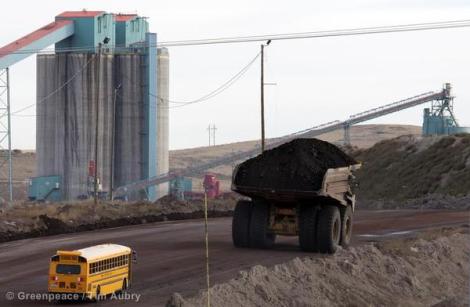One of the many subsidies that coal mining companies like Arch and Peabody enjoy is coming under increased scrutiny from federal regulators. The Department of Interior (DOI) announced that an investigation has been launched to determine if coal companies are using sister companies to reduce the royalties they owe when exporting taxpayer-owned coal to foreign markets. The federal probe follows a Reuters investigation that found that “By valuing coal at low domestic prices rather than the much higher price fetched overseas, coal producers can dodge the larger royalty payout when mining federal land.”

In a letter to Senators Wyden and Murkowski, Secretary of the Interior Ken Salazar promised that DOI’s Inspector General will “aggressively pursue any company found in violation of the laws and regulations related to the valuation of Federal coal.”
This internal investigation follows another investigation currently underway at DOI focused on the coal leasing program run by the Bureau of Land Management (BLM). Without proper oversight, sham “auctions” run by BLM have allowed coal companies to secure taxpayer-owned coal for around $1 per ton. According to a report by Tom Sanzillo of the Institute for Energy Economics and Financial Analysis, this has amounted to a $28.9 billion subsidy over the last 30 years. In addition to DOI’s internal review, the BLM’s coal leasing program is also under review by the General Accounting Office.
It appears that coal companies are trying to bilk taxpayers at every available opportunity, and so far our federal regulators seem to have been asleep at the wheel. Hopefully these investigations signal that they are starting to wake up. After all, there are some pretty aggressive drivers out there – here’s how a spokesperson for one of the coal companies tried to defend their approach: “In my neighborhood, I don’t stop at every block. I could. But that’s not where the stop signs are. You can say you don’t like the regulations, but we play by the rules.”
With the US coal industry desperately seeking shortcuts, we need more vigilance at the Department of Interior – and probably a few more stop signs.




